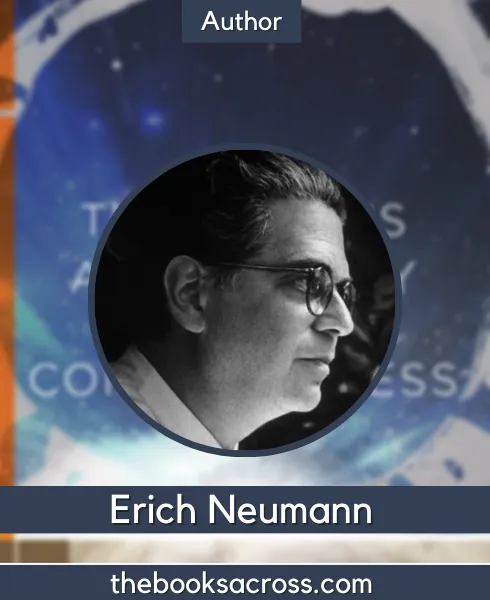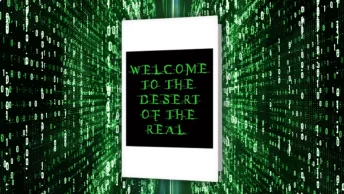The Origins and History of Consciousness PDF is a landmark book written by Erich Neumann, a prominent psychoanalyst, and scholar of mythology. It was first published in 1949 by Princeton University Press and has since become a widely acclaimed and influential work in the field of psychology and mythological studies.
One of the key themes of the book is the idea that human consciousness is shaped by the collective experience of the human race, and that the myths and symbols of different cultures are all expressions of this shared experience. Neumann explores the ways in which these archetypes have been expressed throughout human history and the various ways in which they have been interpreted and reinterpreted over time.
The Origins and History of Consciousness has received widespread critical acclaim since its initial publication. Reviewers have praised the book for its depth of scholarship, its compelling arguments, and its wide-ranging scope. Many have also noted its relevance to contemporary debates in fields such as psychology, anthropology, and cultural studies. The book is available in a variety of formats, including hardcover, paperback, and e-book editions.
Table of Contents
About the Author
Erich Neumann (1905-1960) was a German-Israeli psychoanalyst, philosopher, and scholar of mythology. He was born in Berlin and studied psychology and philosophy at the University of Freiburg before completing his doctorate in psychology at the University of Berlin.

In 1933, he fled Nazi Germany and settled in Tel Aviv, Israel, where he worked as a psychoanalyst and became a founding member of the Israel Psychoanalytic Society. Neumann’s work focused on the intersection of psychology, mythology, and religion, and he was particularly interested in the ways in which archetypal patterns shape human consciousness.
Neumann’s most famous book, “The Origins and History of Consciousness,” was published in 1949 and became a seminal work in the field of psychological and mythological studies. He also wrote several other books, including “The Great Mother” and “Depth Psychology and a New Ethic.”
Neumann was a close associate of Carl Jung and was heavily influenced by his theories of the collective unconscious and archetypes. He also drew on the works of Sigmund Freud, Martin Buber, and other prominent thinkers of the time.
Details of The Origins and History of Consciousness Book
| Book | The Origins and History of Consciousness |
| Author | Erich Neumann |
| Original language | English |
| Originally published | 1949 |
| Category | Non Fiction |
| Publisher | Rascher Verlag |
| Total Pages | 493 |
| Format | PDF, ePub |
The Origins and History of Consciousness PDF Free Download
Click on the download button below to get a pdf file of The Origins and History of Consciousness book.
Multiple Languages Editions of The Origins and History of Consciousness Book
“The Origins and History of Consciousness” is available in English, German, Spanish, French, Italian, Portuguese, and Japanese language editions. The availability of specific language editions may vary depending on the publisher and the country.
| Book Editions | Check Now |
|---|---|
| English | Check Price |
The Origins and History of Consciousness Summary
In the beginning, Neumann talks about how primitive humans thought and how their consciousness was limited to simple perceptions and instincts. As humans evolved, they began to develop more complex forms of consciousness, such as language, art, and religion.
Neumann then discusses the role of archetypes in shaping human consciousness. He argues that certain patterns or images are embedded in the collective unconscious of all human beings, and that these archetypes have been expressed in myths and symbols throughout human history. These archetypes have been reinterpreted over time and are still relevant today.
The book then moves on to discuss the relationship between consciousness and the individual. Neumann examines the psychological processes that shape our understanding of ourselves and the world around us. He also discusses the ways in which different cultures have interpreted and expressed these processes through their myths and symbols.
In the final part of the book, Neumann focuses on the modern era and the challenges facing contemporary society. He argues that the evolution of human consciousness has not been linear, and that there are still areas of human experience that are not fully understood. He also suggests that by studying the evolution of consciousness, we can better understand ourselves and our place in the world.
Similar Books to The Origins and History of Consciousness Book
- Man and His Symbols by Carl Jung
- The Hero with a Thousand Faces by Joseph Campbell
- The Power of Myth by Joseph Campbell and Bill Moyers
- The Interpretation of Dreams by Sigmund Freud
- The Red Book by Carl Jung
- The Archetypes and The Collective Unconscious by Carl Jung
- The Structure of Scientific Revolutions by Thomas S. Kuhn
- The Birth of Tragedy by Friedrich Nietzsche
FAQs(Frequently Asked Questions)
What is the book The Origins and History of Consciousness about?
The book “The Origins and History of Consciousness” is about how human consciousness has evolved over time and the role of archetypes in shaping it.
What is the reading level of The Origins and History of Consciousness?
The reading level of “The Origins and History of Consciousness” is considered advanced, as it covers complex topics in psychology, mythology, and philosophy.
How long does it take to read The Origins and History of Consciousness book?
However, it is a relatively long book with over 500 pages, so it may take several weeks or months to read.
Who is the target audience of The Origins and History of Consciousness book?
The target audience of “The Origins and History of Consciousness” is primarily scholars, students, and professionals in the fields of psychology, mythology, and philosophy.







